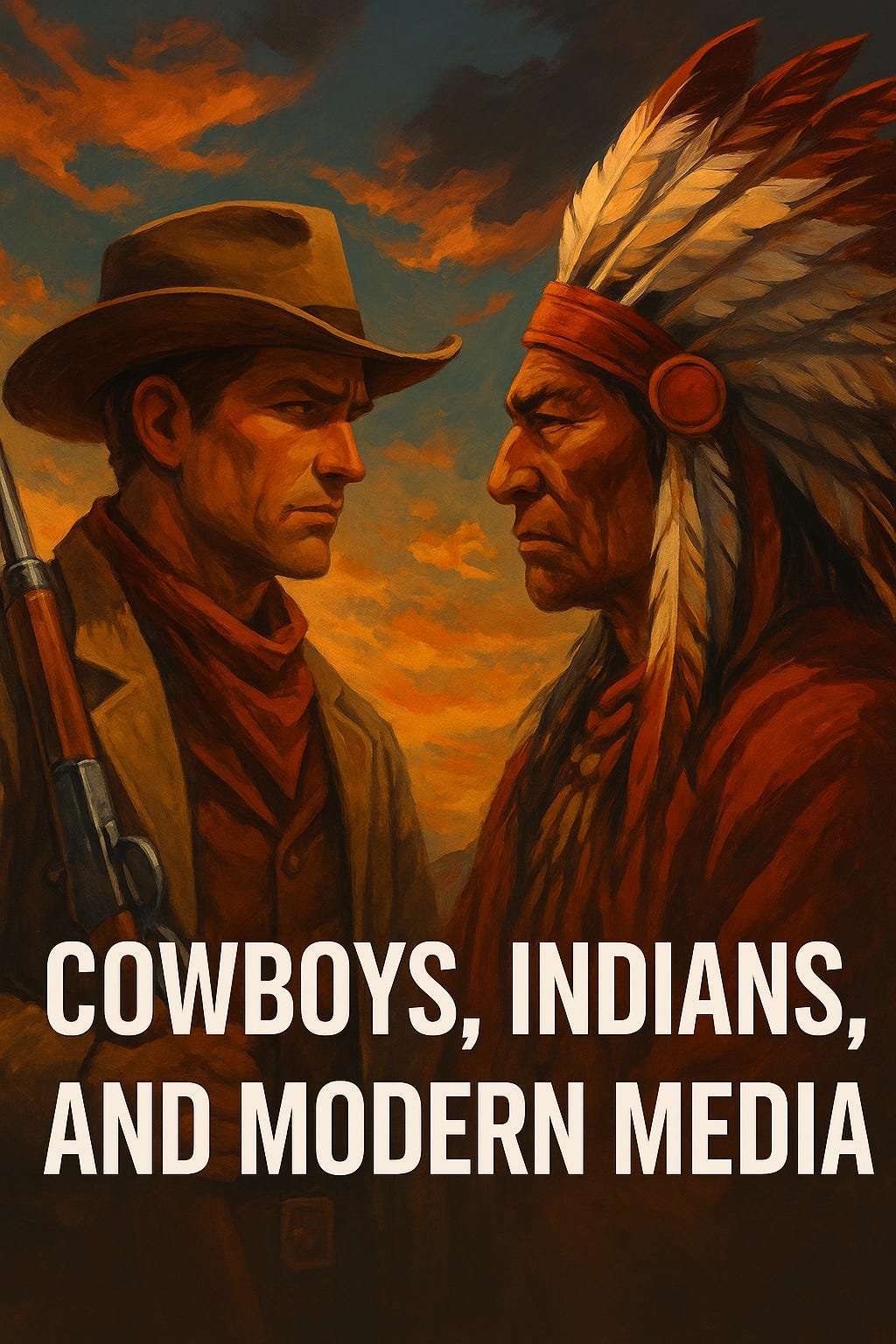Cowboys, Indians, and the Modern Media: When the Villain Writes the Story
How Narrative Warfare Turns Victims into Villains — and Why Black America Must Pay Attention
From the time we were children, we were told the story of the Cowboys and Indians. We cheered for the Cowboys — the brave, gun-slinging heroes defending their land from the “savage Indians.” We didn’t realize that the storytellers were the Cowboys.
The truth, as history records it, is that the Indigenous people were not villains. They were the original stewards of this land, only wanting to protect their families, their homes, and their dignity. They welcomed settlers, traded with them, and even saved them. But as the newcomers’ greed grew, so did their brutality. The Indigenous people were forced to fight not for conquest, but for survival.
Yet because the Cowboys controlled the narrative, the world learned to cheer for the oppressor and despise the oppressed. That’s the oldest form of what we now call narrative warfare — the deliberate shaping of stories so the public roots for the villain and ridicules the victim.
Christopher Columbus didn’t “discover” anything. He arrived with swords, chains, and a theology of domination that justified unspeakable violence. Entire villages were enslaved or slaughtered, women were brutalized, and children were mutilated — yet for centuries, we were taught to celebrate him as a hero.
That’s narrative warfare: the power to define cruelty as courage, theft as destiny, and genocide as progress.
The same blueprint that distorted the story of the Indigenous people became the blueprint for how the media frames Black America today.
Fast-forward to modern times, and the weapons have changed — but the strategy hasn’t. Today, the gun is the headline, and the battlefield is public perception.
When Black leadership speaks truth, they’re branded as “divisive.” When they show emotion, they’re called “angry.” When they seek accountability, they’re labeled “radical.” And when they simply make a mistake, they’re treated as proof that Black people can’t lead.
That’s not journalism — that’s conditioning.
The Pew Research Center’s 2023 report, Black Americans’ Experiences With News, confirmed what many of us already know:
- 63% of Black adults say news coverage about Black people is more negative than coverage about other groups.
- 57% say the media only covers certain segments of Black communities — usually those that fit a stereotype.
- 43% say that coverage of Black people is largely stereotyped.
Those numbers don’t describe impartial reporting. They describe narrative control.
The Brookings Institution has also documented how race shapes perception — not only in media, but in policy. When the storytellers are the same people who benefit from the story, the result is predictable: systems that look fair on paper but feel unjust in practice. It’s the same principle the Cowboys mastered centuries ago — whoever holds the pen holds the power.
That’s why so many Americans grew up cheering for the Cowboy — the gunman who stole land — instead of the Indigenous families who just wanted peace. And today, too many still cheer for the “Cowboys” of media: the networks, anchors, and editors who distort reality and then sell it back to us as truth.
When a Black councilman like Kevin Conwell survives being shot at, the headline isn’t “Leader Escapes Tragedy.” It’s “Did It Really Happen?”
When Richard Starr, a man who rose from the projects to earn his master’s degree, raises his voice about injustice, he’s caricatured as “angry.”
When Joe Jones makes a mistake, it becomes a saga of public humiliation, stripped of grace or proportionality.
Each story is presented as isolated. But together, they form a pattern: Black leaders are framed not by their record, but by a tone, a moment, or a misstep — magnified by a system that feeds on distrust. This isn’t new. It’s the same old narrative machine dressed in modern technology.
Narrative warfare doesn’t always lie outright — it simply shifts the lens. It tells you what to see, how to feel, and who to blame. It makes you doubt your own truth. And it trains the public to celebrate the persecutor while condemning the persecuted.
That’s why so many people once rooted for the Cowboys. It’s why so many today rush to believe the worst about Black leadership.
The solution is not just representation — it’s reclamation. We must take back the power to frame our stories with accuracy, context, and humanity. To read critically. To question headlines. To stop joining in the public persecution of our own.
As Pew’s research shows, most Black Americans already recognize the bias. What we need now is collective response — a refusal to let anyone else define our heroes or our humanity.
Because the real victory isn’t who wins the gunfight. It’s who gets to tell the tale.
✊🏾 Black Vanguard Media
Reclaiming the Frame. Restoring the Truth.


